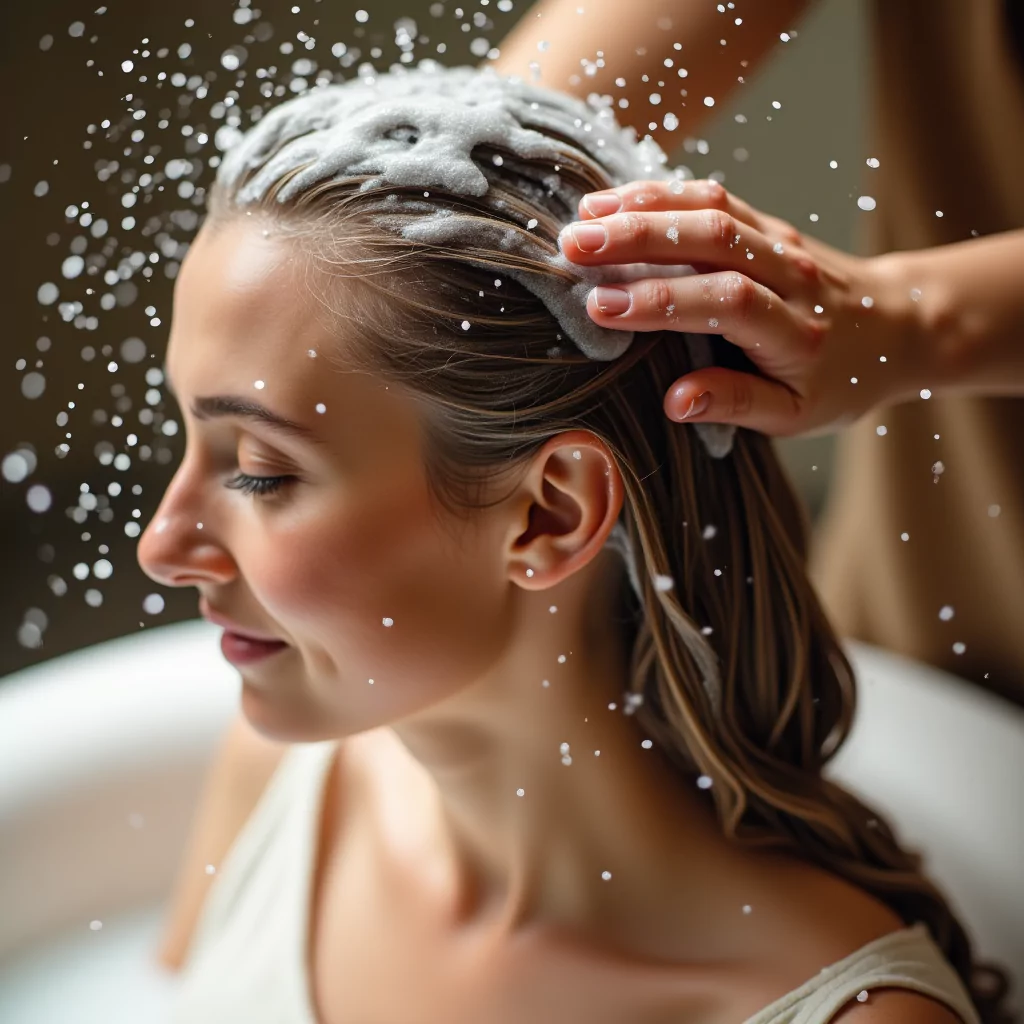Washing your hair might seem like a simple, everyday activity, but it plays a critical role in your hair’s health. Surprisingly, there’s much debate surrounding hair washing: how often to wash, which products to use, and the best techniques. Hair is a vital part of one’s appearance, so it’s understandable to want clean, well-maintained hair. Many people wonder if it’s okay to wash hair daily, and opinions are divided. Those with oily scalps, who live in humid climates, or who exercise regularly may find daily washing essential for hygiene and comfort. However, frequent washing can also strip hair of its natural oils, leading to dryness and damage, especially for those with dry hair types.
How Often Should You Wash Your Hair?
Your hair-washing frequency depends on individual factors. While many people wash their hair every other day or every few days, other considerations—like scalp oil production, styling habits, and hair type—also play a role. Over-washing can strip natural oils, leaving hair dry and prone to breakage, while infrequent washing can result in greasy buildup that may lead to scalp infections. A balanced hair care routine keeps the scalp clean and healthy, reducing potential discomfort or conditions.
Understanding Sebum Production
Sebum production, the natural oil created by glands in your hair follicles, varies among individuals and influences both the frequency and technique of hair washing. Sebum acts as a moisture barrier, helping to protect the scalp from infections. However, the rate of sebum production can differ due to genetics, age, hormones, and environment. Those with oilier scalps produce more sebum, which can mix with sweat and dead skin cells, leading to flakiness or a greasy scalp. This buildup, if unmanaged, can cause dandruff, acne, or even hair loss. Thus, individuals with oily scalps often benefit from more frequent washing to keep their scalps clean and healthy.
Conversely, people with drier scalps often need products that maintain moisture without over-drying. Finding a personalized hair washing schedule that balances moisture and scalp cleanliness is essential to achieving optimal hair health.
Choosing the Right Ingredients in Shampoos and Conditioners
Understanding shampoo and conditioner ingredients is fundamental to maintaining healthy hair. Shampoos cleanse by removing dirt and oil but can sometimes strip essential moisture, especially if they contain harsh chemicals. Identifying your hair and scalp type—and any specific concerns like brittleness, oiliness, frizz, or damage—helps in choosing the most beneficial ingredients. Many products today offer targeted results, such as hydration, shine, or thorough cleaning, though lengthy ingredient lists can sometimes be hard to interpret.
Recently, natural shampoos have gained popularity for their clean and sustainable appeal. They not only cleanse but also enhance hair health. For example, SheaMoisture Jamaican Black Castor Oil Shampoo is known for strengthening Black hair, while products like WOW Skin Science Apple Cider Vinegar Shampoo are popular for oily hair. When selecting shampoos, look for ingredients that support your specific hair needs, as the right choice can balance pH, remove dirt, and prevent buildup.
Determining the Ideal Washing Frequency
Finding the perfect washing routine can be complex. It depends on hair type, scalp condition, lifestyle, and products used. For straight hair, natural oils can travel easily down the hair shaft, leading to a quicker buildup of oil. This hair type may require frequent washing to maintain freshness. Wavy hair, which sits between straight and curly textures, needs balanced moisture and can benefit from washing every few days.
Focusing on scalp health is essential regardless of hair type. A clean, moisturized scalp helps prevent issues like dryness and irritation. Lifestyle factors—like activity levels and exposure to environmental pollutants—also play a role in determining a personalized hair care routine.
Tailoring a Hair Washing Routine for Different Hair Types
Each hair type requires unique care:
- Straight Hair: Often prone to oiliness and may need frequent washing. Lightweight, volumizing shampoos can help avoid a flat look.
- Wavy Hair: Needs a balance of moisture without weighing down natural waves. Washing a few times a week can maintain healthy waves.
- Curly Hair: Benefits from less frequent washing to prevent dryness and frizz. Hydrating, sulfate-free shampoos are best for maintaining moisture.
- Kinky Hair: The driest hair type, which requires sparing washing—once a week is often sufficient—to preserve natural oils. Deep conditioning treatments are recommended to prevent breakage.
Using lukewarm water and products that match your hair’s specific needs can greatly enhance your hair’s health.
Common Misconceptions in Hair Care
Several myths can lead to ineffective or even harmful hair practices. For example, brushing hair 100 times daily is thought to improve health, yet it can lead to damage and breakage. Gentle brushing is sufficient to detangle. Another myth is that frequent trims promote faster growth; however, hair growth is primarily determined by genetics, diet, and health. Washing frequently doesn’t cause hair loss; it simply dislodges hair already in the shedding phase.
Another misconception is that air drying is always healthier than heat styling. While heat can damage hair, air drying isn’t always ideal for every hair type. Balancing your approach to hair care is essential to avoid unnecessary damage.
Managing Scalp Conditions with a Balanced Hair Routine
Scalp health greatly affects your hair-washing routine and product selection. Dandruff, one of the most common conditions, is characterized by flaking and itchiness and is often due to factors like genetics, microbial imbalances, or the overgrowth of yeast. Regular use of dandruff shampoos, which contain active ingredients to combat fungal overgrowth, can help manage dandruff. Dermatologists often recommend rotating dandruff shampoos and consistent brushing to distribute scalp oils.
Understanding your scalp’s needs and adjusting your hair care routine can support a healthier scalp. Regular washing and appropriate product use can effectively manage scalp issues and improve hair health.
Conclusion
Creating an effective hair-washing routine tailored to your hair and scalp type is key to maintaining healthy, beautiful hair. From understanding how sebum impacts washing frequency to selecting the right ingredients in shampoos and dispelling common myths, following informed, science-backed practices ensure your hair care routine supports both scalp health and hair appearance.
How often should hair be washed?
Hair-washing frequency depends on individual factors such as hair type, scalp condition, lifestyle, and personal preference. Generally, most people wash their hair every two to three days. People with oilier scalps may need to wash more often, while those with drier hair types may benefit from washing less frequently.
What is the best way to wash your hair?
The best way to wash hair includes using lukewarm water to avoid stripping natural oils, gently massaging the scalp with fingertips to remove buildup, and using shampoo and conditioner suited to your hair type. Avoid hot water and harsh scrubbing, as these can damage hair and scalp health.
What are the rules for washing hair?
Key rules for washing hair include selecting products based on hair and scalp type, avoiding hot water, using a sulfate-free or hydrating shampoo for dry or curly hair, and conditioning to retain moisture. Regular washing helps maintain scalp health, while over-washing may lead to dryness and brittleness.
How long can you go without washing your hair?
Most people can go two to three days without washing, but some individuals may extend it to a week, especially if they have dry or curly hair. This duration also varies with lifestyle factors like exercise and exposure to pollutants.
How often do dermatologists recommend washing hair?
Dermatologists typically recommend washing hair every two to three days, but those with very oily scalps may need to wash more frequently. People with dry or textured hair might need to wash it only once or twice a week to maintain moisture.
Is it okay to wash hair with water only?
Washing with water only can remove some dirt and sweat, but it may not be effective in clearing away excess oil, product buildup, or environmental pollutants. Using a gentle shampoo occasionally is often necessary to maintain scalp and hair health.






